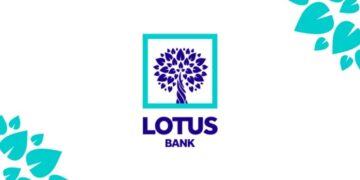 “MY CHOLERIC BOOM BOOM BOY”
“MY CHOLERIC BOOM BOOM BOY”
Case Study
The song is too slow, so please switch it, Evans interrupted. He gesticulates with his hands and feet like a drummer, “Let’s pick a quick song that goes boom, boom, boom”.
To find a song for the younger team’s choreography (ages 9 to 14) that will surpass the young adults’ selection (ages 15 to 25), we have been searching YouTube. My young acquaintance did not take kindly to my suggestion, which was a ballet dance style, even though I had searched for minutes before, coming up with something completely unexpected and new that would “beat” their competitors.
One of the kids I tutor in my community is Evans, an eleven-year-old boy with a lot of energy. He went straight to the drums the day he joined the group. The fact that it was his first day and he wasn’t so talented didn’t stop him from being extremely driven to play the drums. He got his wish and was given a little window of playing at the end of the day. He clearly wasn’t there to stare at the ceiling.
This boy’s refusal to limit himself to the youth group’s activities was one of his most remarkable qualities. His relatively petite frame and advanced age are not constraints in any manner. Evans is usually found mingling with the more senior members of the crew, engaging in conversation or working alongside them in farming, masonry, or pulling large loads on wheelbarrows while flashing his 32 pearly whites to everyone. He is a bright boy and a workaholic to the core.
Regardless of his skills or background, he wanted to be engaged in everything from the minute he joined the youth squad.
Now, the crucial question is: How can we help someone like Evans reach his full potential?
Let’s enter the Education Room to discover some advice for anyone who identifies as an Evans or Evangelina.
Education Room
Every individual is largely influenced by his/her temperaments. Even as babies, parents will realize that while one child can be found on the same spot he/she was placed after many hours, another child will require constant tracking and monitoring. Our temperaments are inborn, and it determines how individuals react to people, places, and things. There are four main temperament types: choleric, sanguine, phlegmatic, and melancholic. Each temperament has its own unique characteristics that affect how individuals behave in the workplace. Let’s journey through to look at the Choleric Temperament.

The Choleric Temperament
The choleric individual is outgoing and energetic. Regardless of age, their trademark is confidence. You have undoubtedly witnessed kids playing, and the most confident of their younger siblings appears to be the one giving instructions. They are always moving and exhibit workaholic tendencies. They don’t tolerate slowness or sluggishness since they move quickly in all they undertake. Their dictionary does not contain the word “sitting down and doing nothing.”
They make snap decisions; they know what they want and will do whatever it takes to get it. Their aspiration is to get to the top of the leadership ladder, where they can take charge, lead, and be looked up to. They are goal-oriented, result-oriented people who thrive in high-pressure environments.
No matter where they go, they want to rule with their powerful force. A natural problem-solver, the choleric enjoys difficulties and is incredibly pragmatic.
Lack of self-control and the inability to manage their emotions are the worst flaws. Excitation, anger, and opinionation all come naturally to them.
Nurturing a Choleric Evans
The first step in developing and nurturing our children’s strength is to determine their temperaments. Based on the qualities listed above, it is clear that Evans is choleric. He has a strong workaholic nature, a strong determination to achieve results, and leadership qualities. To support a child who identifies as Evangelina or Evans, we should recognize and commend their independence, leadership, and determination. Evangelina or Evans’s desire to lead, participate in projects, and take on large roles and tasks is motivated by the aspiration for achievement and accomplishment of goals, which needs to be supported and given confidence boosts.
There’s a chance Evans the Choleric will snap at you, challenge you, and voice their opinions. Before it’s too late, we must instill in them the value of learning how to manage their anger from an early age. Numerous choleric bosses oversee individuals who have achieved remarkable feats, but they are alarmed by their incapacity to regulate their feelings. Assertive communication, win-win problem solving, and active listening are other crucial skills to impart and practice. If things don’t go their way, the Choleric Evangelina or Evans may be easily irritated. So, instead of encouraging them to give up on themselves, one needs to be patient with them, give them the support they need, and help them learn from their failures and disappointments.
It is important to remember that although our temperaments are innate, they are also greatly influenced by our upbringing, education, surroundings, and other experiences. This helps us grow into better individuals. Since children learn by imitation, it is crucial that we provide a good example for them in terms of communicating, handling stress and difficulties, and expressing our feelings.
Lastly, I’m sure you’re asking about the status of our song search. Well, Evans got his wish, and the group got a great dance and a boom boom boom tune because of his magnetism.
_______________________ With Theodora Senaya || By Dr Genevieve Obuobi _______________________ Theodora Senaya is a Chartered Banker, a Member of the Institute of Directors (Ghana), a Fellow of the Chartered Institute of Leadership and Governance, a Risk Specialist, a Temperament Coach and a Lead Implementer of ISO 22301 Email: theodorasenaya@gmail.com Tel: 00233-244385317


















































































 EduTimes Africa, a product of Education Times Africa, is a magazine publication that aims to lend its support to close the yawning gap in Africa's educational development.
EduTimes Africa, a product of Education Times Africa, is a magazine publication that aims to lend its support to close the yawning gap in Africa's educational development.